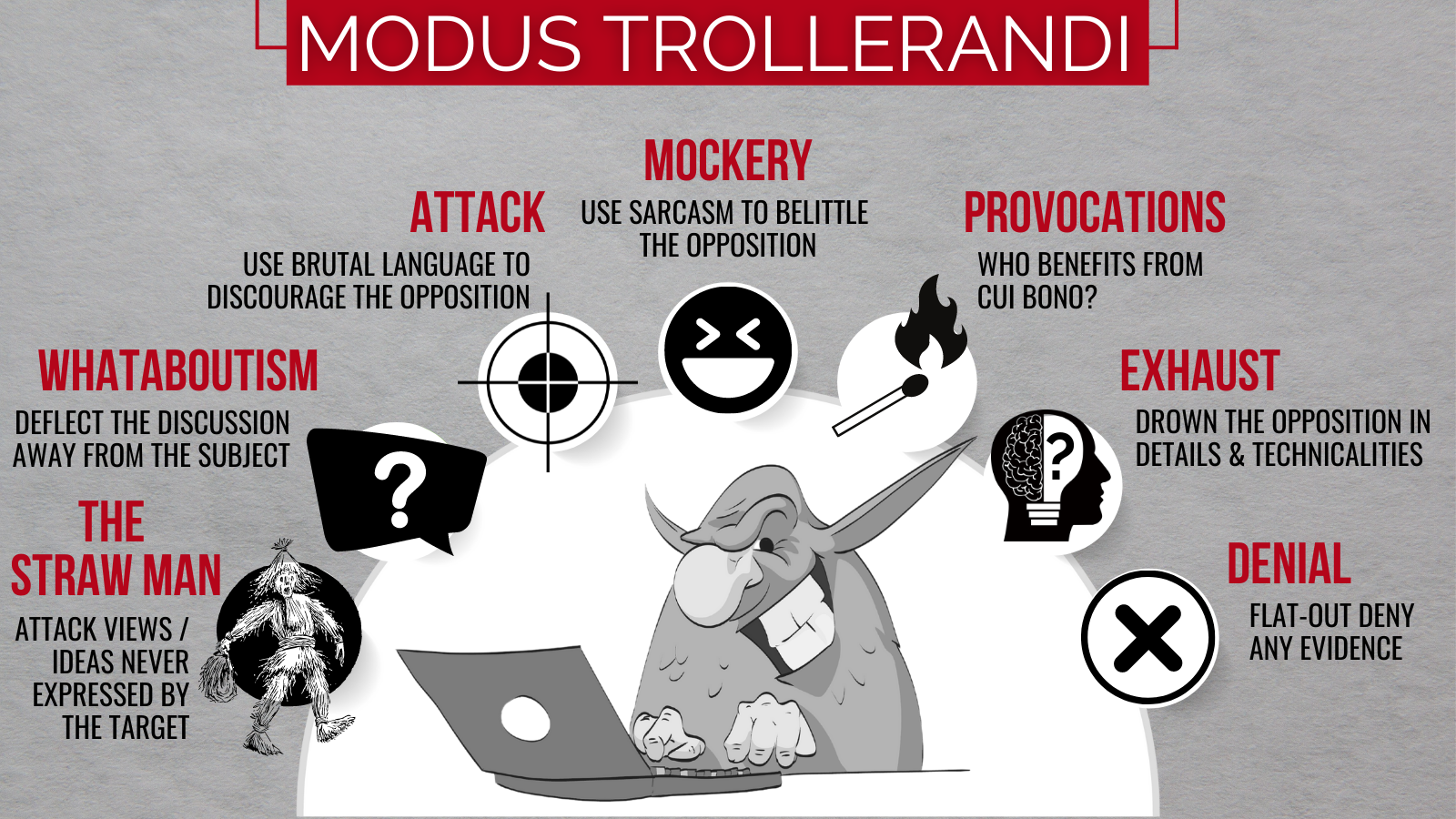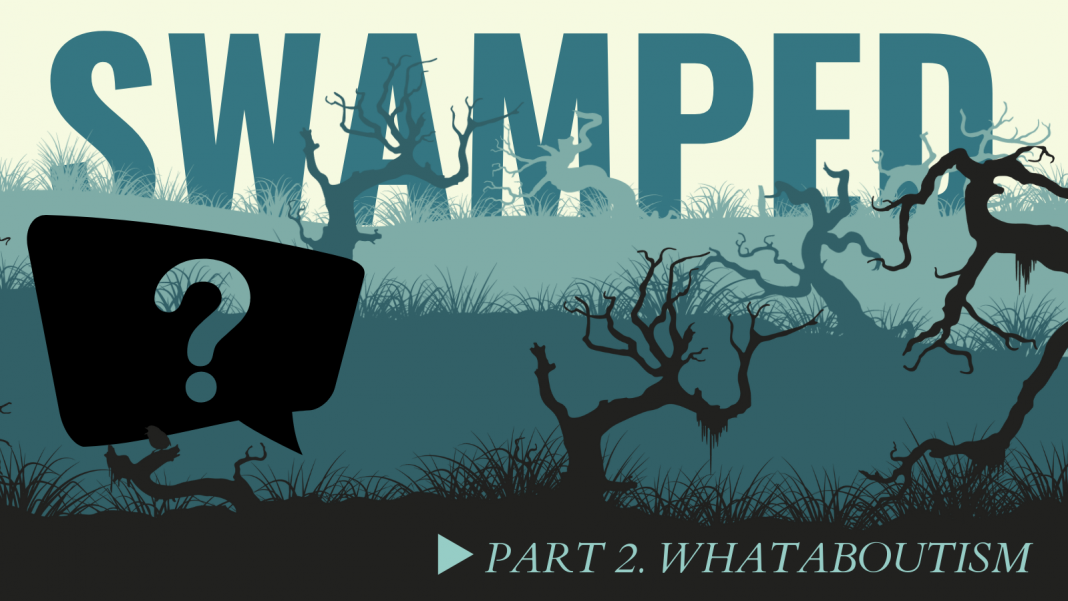How Democracy is SWAMPED: Seven Cheap Tricks
In a series of articles, EUvsDisinfo will demonstrate a few of the cheap tricks of the Rhetoric of Disinformation; how the producers of disinformation systematically derail an exchange of ideas – the core of democracy – through a set of handy devices. Kremlin trolls ensure public discourse gets bogged down in a quagmire of pointless contestation. A Swedish activist has coined the term Modus Trollerandi to describe ways of trying to spoil the public debate through a set of cheap tricks. EUvsDisinfo has developed the concept further, to show how democracy gets SWAMPED by malign manipulation.
S: Strawmen:
Attack views or ideas, never expressed by the target.
W: Whataboutism:
Deflect the discussion away from the subject.
A: Attack:
Use brutal language to discourage the opposition.
M: Mockery:
Use sarcasm to belittle the opposition.
P: Provocations:
Who benefits from Cui Bono?
E: Exhaust:
Drown the opposition in details and technicalities.
D: Denial:
Flatly deny any evidence
W for Whataboutism
This device was frequently employed in connection with the Belarusian president Alyaksandr Lukashenka’s act of air piracy in late May. The Kremlin spin doctors made furious attempts to deflect the news from the incident, claiming that sending fighter jets to intercept civilian aircraft and forwarding false bomb threats were common practice. This claim has been repeated ad nauseam (a device to be covered in a later article). Examples can be found here, here and here.
Whataboutism is a rhetorical device to deflect attention away from an unpleasant issue. The Oxford English Dictionary defines it as:
The technique or practice of responding to an accusation or difficult question by making a counter-accusation or raising a different issue.
The method is very popular in the pro-Kremlin disinformation ecosystem. “Russian military shot down a passenger plane? Well, what about all the aircraft the US has shot down?” “Eastern Ukraine? Well, what about all the countries in whose affairs the US has interfered?” “Demonstrators detained in Russia? Well, what about the police violence in Europe and the gilets jaunes? What about the persecution of the participants in the peaceful protests in Washington?”
The Tu Quoque Fallacy
Classical rhetoric describes this technique as a version of the tu quoque fallacy. In Russian, it is “сам дурак” – “you are the idiot!”. This approach has deep roots in Soviet rhetorical traditions, and the Kremlin disinformation ecosystem often uses it. EUvsDisinfo has described the method in several articles – here, here and here, for instance.
Whataboutism is an efficient cheap trick, and it has been a core element of Kremlin disinformation for a very long time. Even at the highest political level, instead of replying to questions on mass detentions of peaceful demonstrators, Russian officials apply whataboutism instead of dialogue:
We sent compilation of materials about how detentions are carried out and peaceful protests are broken up, how the police act in EU countries to Mr. Borrell so that he and his delegation could have a chance to answer many questions themselves before posing them to us.
Whataboutism is an aggressive means of assuming control over a debate. Through whataboutism, the Kremlin deflects criticism and turns the accusation against the opposition. The attacked party is forced into a defensive position and the Kremlin claims moral high ground.
The antidote to whataboutism: stay on track, and insist on continuing debate on the core issue.
Next: A for Attack






